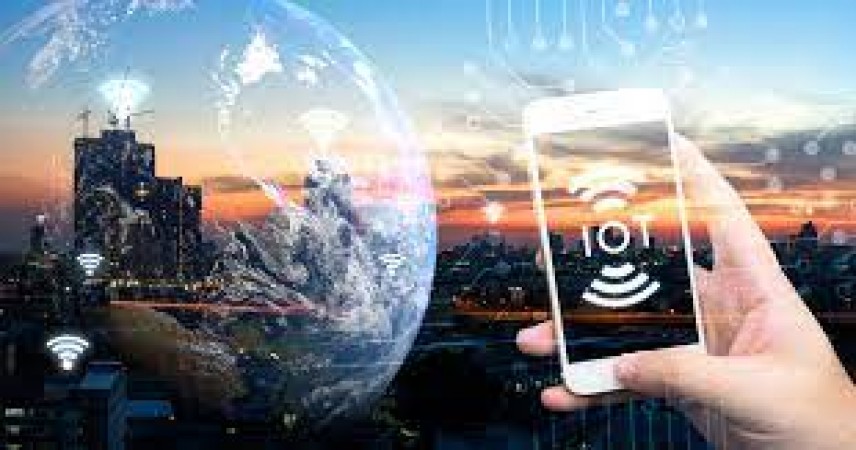
The Mobile Internet of Things (IoT) has emerged as a groundbreaking technology that connects various devices and enables them to communicate and share data wirelessly. With the proliferation of smartphones and the advancement of wireless networks, mobile IoT applications have gained significant popularity in recent years. This article explores the diverse range of mobile IoT applications and their impact on various industries.
1. Introduction: The Mobile Internet of Things (IoT) refers to the interconnection of everyday devices with embedded sensors, software, and network connectivity to enable data sharing and communication. These devices include smartphones, tablets, wearables, vehicles, appliances, and more. By leveraging mobile IoT applications, industries and individuals can benefit from enhanced efficiency, improved productivity, and seamless connectivity.
2. Smart Home Automation: One of the most common applications of mobile IoT is smart home automation. With the use of smartphones, homeowners can control various aspects of their homes remotely. From adjusting temperature and lighting to managing home security systems, mobile IoT allows for greater convenience and energy efficiency.
3. Wearable Devices and Healthcare: Mobile IoT has revolutionized the healthcare industry through wearable devices. These devices, such as fitness trackers and smartwatches, can monitor vital signs, track physical activities, and provide real-time health data to users and healthcare professionals. This technology has immense potential in remote patient monitoring, chronic disease management, and improving overall well-being.
4. Connected Vehicles: The automotive industry has embraced mobile IoT to create connected vehicles. By integrating vehicles with mobile devices, drivers can access navigation systems, receive real-time traffic updates, and control entertainment systems hands-free. Moreover, mobile IoT enables vehicle diagnostics, predictive maintenance, and enhanced safety features.
5. Industrial Internet of Things (IIoT): In the industrial sector, mobile IoT applications play a crucial role in optimizing operations and increasing productivity. By connecting machines, sensors, and data analytics, IIoT enables real-time monitoring, predictive maintenance, and streamlined processes. Industries such as manufacturing, oil and gas, and logistics benefit greatly from mobile IoT solutions.
6. Smart Cities and Infrastructure: Mobile IoT plays a vital role in the development of smart cities and infrastructure. By integrating various systems and devices, cities can improve energy management, reduce traffic congestion, enhance public safety, and optimize resource allocation. Mobile IoT applications enable intelligent transportation systems, smart grids, and efficient waste management.
7. Agriculture and Environmental Monitoring: In agriculture, mobile IoT applications offer farmers real-time data on soil moisture levels, weather conditions, and crop health. This information allows for precise irrigation, optimal resource utilization, and early pest detection. Additionally, mobile IoT aids in environmental monitoring by collecting data on air quality, water pollution, and biodiversity.
8. Retail and Inventory Management: Mobile IoT has transformed the retail industry by enabling real-time inventory tracking, personalized customer experiences, and efficient supply chain management. Retailers can use mobile devices to monitor stock levels, automate reordering processes, and analyze customer behavior to provide targeted marketing campaigns.
9. Logistics and Supply Chain: Efficient logistics and supply chain management are crucial for businesses. Mobile IoT applications provide real-time visibility into the movement of goods, optimize routes and delivery schedules, and improve overall efficiency. Tracking devices and sensors integrated with mobile technology enable seamless inventory management and reduce operational costs.
10. Energy Management: Mobile IoT plays a significant role in energy management, promoting sustainability and reducing energy consumption. Through smart meters and connected devices, individuals and organizations can monitor and control energy usage in real-time. This technology allows for better energy efficiency, demand response, and integration of renewable energy sources.
11. Conclusion: The Mobile Internet of Things (IoT) has revolutionized various industries by offering innovative solutions and improved connectivity. From smart home automation to industrial applications and healthcare, mobile IoT has transformed the way we live and work. As this technology continues to advance, we can expect further integration and expansion of mobile IoT applications across multiple sectors.
Sony Unveils SRS-XV800: An Exhilarating Party Speaker Tailored for the Indian Market
Unlocking the Future: How 5G Technology is Revolutionizing Connectivity and Industries
Viber: Revolutionizing Communication and Connecting People Worldwide